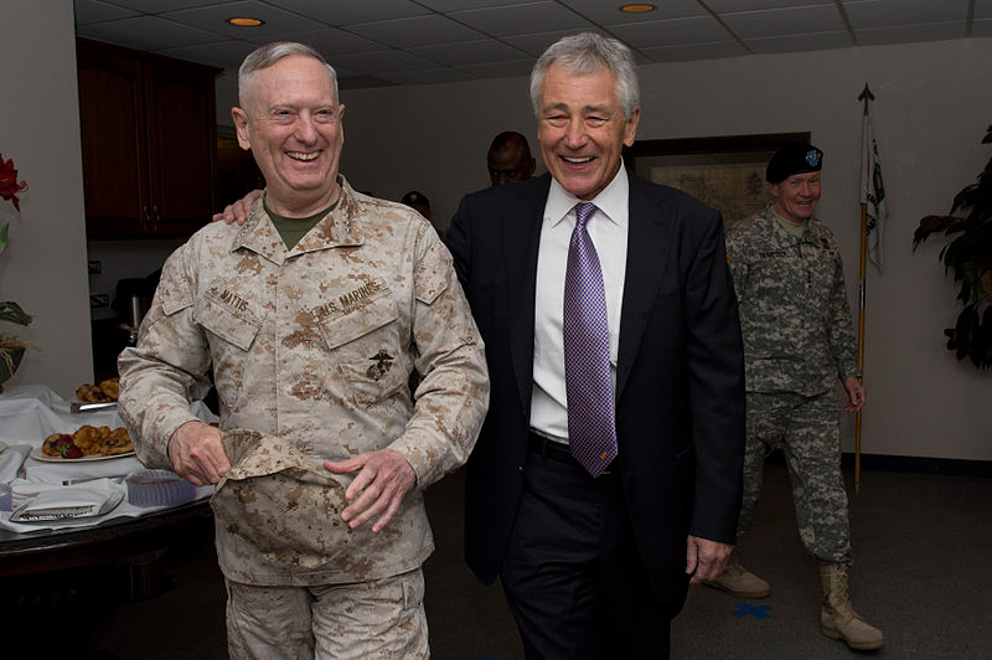Retired Gen. James Mattis, distinguished visiting fellow at the Hoover Institution, will attend his confirmation hearing before the Senate Armed Services Committee for the position of secretary of defense this Thursday.
In order to take on the role of defense secretary, Mattis needs to overcome a law stipulating that nominees must first spend at least seven years out of the military, as Mattis retired from the military in 2013. In order to bypass the seven-year requirement, the House of Representatives and the Senate must pass a waiver granting him an exception.
Several members of Congress have voiced worries about the waiver or vowed to oppose it. For some, the waiver represents a lack of concern for the principle of civilian rule over the military.
“We should ask ourselves whether the reputation of our military as a highly professional, nonpartisan institution would be tainted if its most respected leaders were allowed to seamlessly segue into political positions,” wrote Rep. Ruben Gallego, a Marine veteran, in an opinion article for The Washington Post in which he advocated a “cooling-off period for former military leaders.”
Others, such as Sen. John McCain and Rep. Mac Thornberry, support Mattis’ nomination and do not view the waiver as an issue.
“Few individuals in the field of national security are as respected and admired as Jim Mattis,” Thornberry told The Post. “His nomination as secretary of defense is an excellent selection, and I am grateful for his willingness to serve in this capacity.”
Mattis’ nomination, if confirmed, represents an opportunity for the Hoover Institution. Last month, the Institution emphasized its connection with Mattis in a fundraiser letter addressed to potential donors.
“The Hoover Institution now has an opportunity to influence the course of American and world history in a way that no one could have foreseen,” wrote Institution Director Thomas Gilligan in the letter. “Hoover Fellow General James Mattis has been nominated to be secretary of defense. He will no doubt rely on his colleagues at Hoover who already have extensive military and national security experience.”
Some government ethics experts maintain that outside groups such as the Hoover Institution may promote their political connections only up to a certain point before their actions become unjustifiable.
Yet Tom Donnelly and Mandy Smithberger, defense analyst with the American Enterprise Institute in Washington and official with the Project on Government Oversight in Washington, respectively, agreed that using Mattis’ name in such a way does not cross any lines — at least until the outcome of his nomination is decided, they told Bloomberg.
Smithberger pointed out that “left-leaning think tanks would be sending out similar emails” if Democratic candidate Hillary Clinton had won the presidential election.
Hoover spokesperson Eryn Witcher Tillman told Bloomberg that Mattis neither saw the message prior to sending nor was asked for to approve it. Tillman was unavailable for comment to The Daily.
Over the course of his 43-year commitment to the Marines, Mattis headed an assault battalion in Operation Desert Storm as lieutenant colonel and served as Department of Defense executive secretary and senior military assistant to the deputy secretary of defense. He commanded a multitude of operations in Iraq and Afghanistan post-9/11 and served as both commander of U.S. Joint Forces Command and NATO’s supreme allied commander for transformation.
Mattis has said he considers Iran the most significant obstacle to peace in the Middle East and supports enforcement of the Iran nuclear deal. He has also remarked that the Obama administration’s “policy of disengagement in the Middle East” increased Middle Eastern extremism. However, Mattis is more wary of Russia and its expansionist policies than President-elect Donald Trump. Mattis has also stated that torture is ineffective, a view at odds with Trump’s.
Mattis joined the Hoover Institution as an Annenberg distinguished visiting fellow in 2013, following his retirement from the position of head of U.S. Central Command. He later became a Davies Family distinguished visiting fellow. At Hoover, he is a member of the “Role of Military History in Contemporary Conflict” working group and researches the relationship between U.S. civilians and the military. He co-edited the book “Warriors and Citizens: American Views of Our Military.”
Contact Elise Most at emost ‘at’ stanford.edu.
